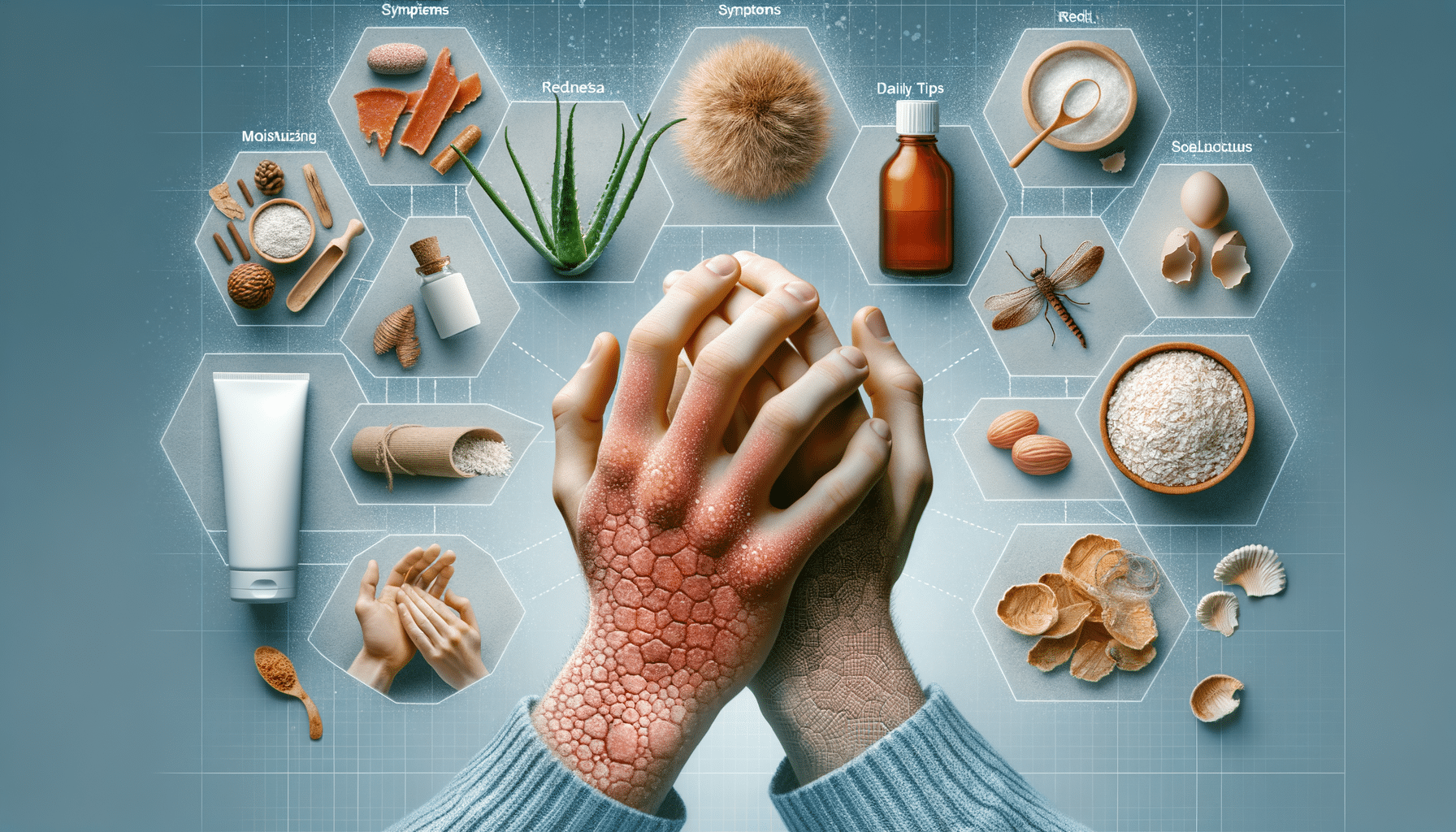
Eczema Relief: Symptoms, Daily Tips, and Soothing Solutions
Understanding Eczema: Symptoms and Causes
Eczema, also known as atopic dermatitis, is a chronic skin condition characterized by inflamed, itchy, and often scaly patches of skin. It affects millions of people worldwide, and understanding its symptoms and causes is crucial for effective management. Common symptoms include intense itching, redness, swelling, and the appearance of crusty or leathery patches. These symptoms can vary in severity and may flare up periodically.
The exact cause of eczema remains unclear, but it is believed to be linked to a combination of genetic and environmental factors. Individuals with a family history of eczema, asthma, or hay fever are more likely to develop the condition. Environmental triggers such as stress, allergens, and changes in weather can also exacerbate symptoms. By identifying and avoiding these triggers, individuals can reduce the frequency and intensity of flare-ups.
Moreover, eczema can significantly impact the quality of life, leading to sleep disturbances, social embarrassment, and emotional distress. Therefore, early diagnosis and a comprehensive understanding of the condition are essential for effective management and relief.
Daily Skincare Routine for Eczema Relief
Adopting a consistent and gentle skincare routine is vital for managing eczema and alleviating its symptoms. Moisturizing the skin regularly is one of the most effective ways to prevent dryness and itching. It is advisable to use fragrance-free and hypoallergenic moisturizers that are specifically designed for sensitive skin.
When bathing, it’s important to use lukewarm water and mild, soap-free cleansers to avoid irritating the skin. After bathing, gently pat the skin dry with a soft towel and immediately apply a moisturizer to lock in moisture. Avoiding harsh scrubbing and using soft, breathable fabrics can also help reduce irritation.
In addition to skincare products, maintaining a healthy lifestyle can contribute to eczema relief. Adequate hydration, a balanced diet rich in omega-3 fatty acids, and stress management techniques such as yoga or meditation can support overall skin health and reduce the likelihood of flare-ups.
Natural Remedies and Home Treatments
Many individuals seek natural remedies and home treatments to complement their eczema management plan. Oatmeal baths are a popular choice, as colloidal oatmeal has soothing properties that can alleviate itching and inflammation. Adding a cup of finely ground oatmeal to a lukewarm bath can provide relief and hydration to dry skin.
Coconut oil is another natural remedy known for its moisturizing and anti-inflammatory properties. Applying a thin layer of virgin coconut oil to affected areas can help reduce dryness and soothe irritation. Additionally, aloe vera gel is renowned for its cooling and healing effects, making it a suitable option for calming inflamed skin.
While natural remedies can offer relief, it’s important to consult with a healthcare professional before trying new treatments, especially for individuals with severe eczema or those using prescription medications. Combining natural remedies with a comprehensive treatment plan can enhance overall effectiveness.
Medical Treatments and Therapies
For individuals with moderate to severe eczema, medical treatments and therapies may be necessary to achieve relief. Topical corticosteroids are commonly prescribed to reduce inflammation and itching. These medications are available in various strengths, and a healthcare provider can recommend the most appropriate option based on the severity of the condition.
In cases where topical treatments are insufficient, systemic medications such as oral corticosteroids or immunosuppressants may be considered. These medications work by suppressing the immune system to reduce inflammation throughout the body. However, they may have potential side effects and require careful monitoring by a healthcare professional.
Phototherapy, or light therapy, is another treatment option for eczema. It involves exposing the skin to controlled amounts of ultraviolet light, which can help reduce inflammation and improve symptoms. Phototherapy is typically administered in a medical setting and may be recommended for individuals who do not respond well to other treatments.
Living with Eczema: Tips for Daily Management
Living with eczema requires a proactive approach to minimize symptoms and improve quality of life. Identifying and avoiding triggers is a crucial step in managing the condition. Common triggers include certain fabrics, soaps, detergents, and allergens such as dust mites and pollen. Keeping a diary to track flare-ups and potential triggers can be helpful in identifying patterns.
It’s also important to maintain a consistent skincare routine and adhere to any prescribed treatments. Regular follow-ups with a healthcare provider can ensure that the treatment plan remains effective and is adjusted as needed. Support groups and online communities can provide valuable resources and emotional support for individuals living with eczema.
Ultimately, while eczema can be challenging, a combination of medical treatments, lifestyle adjustments, and self-care practices can help individuals manage their symptoms and lead a fulfilling life. Staying informed and proactive in managing the condition is key to achieving long-term relief.


